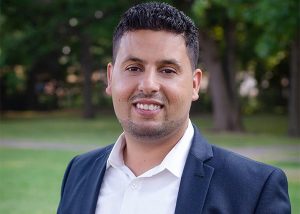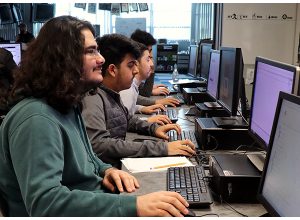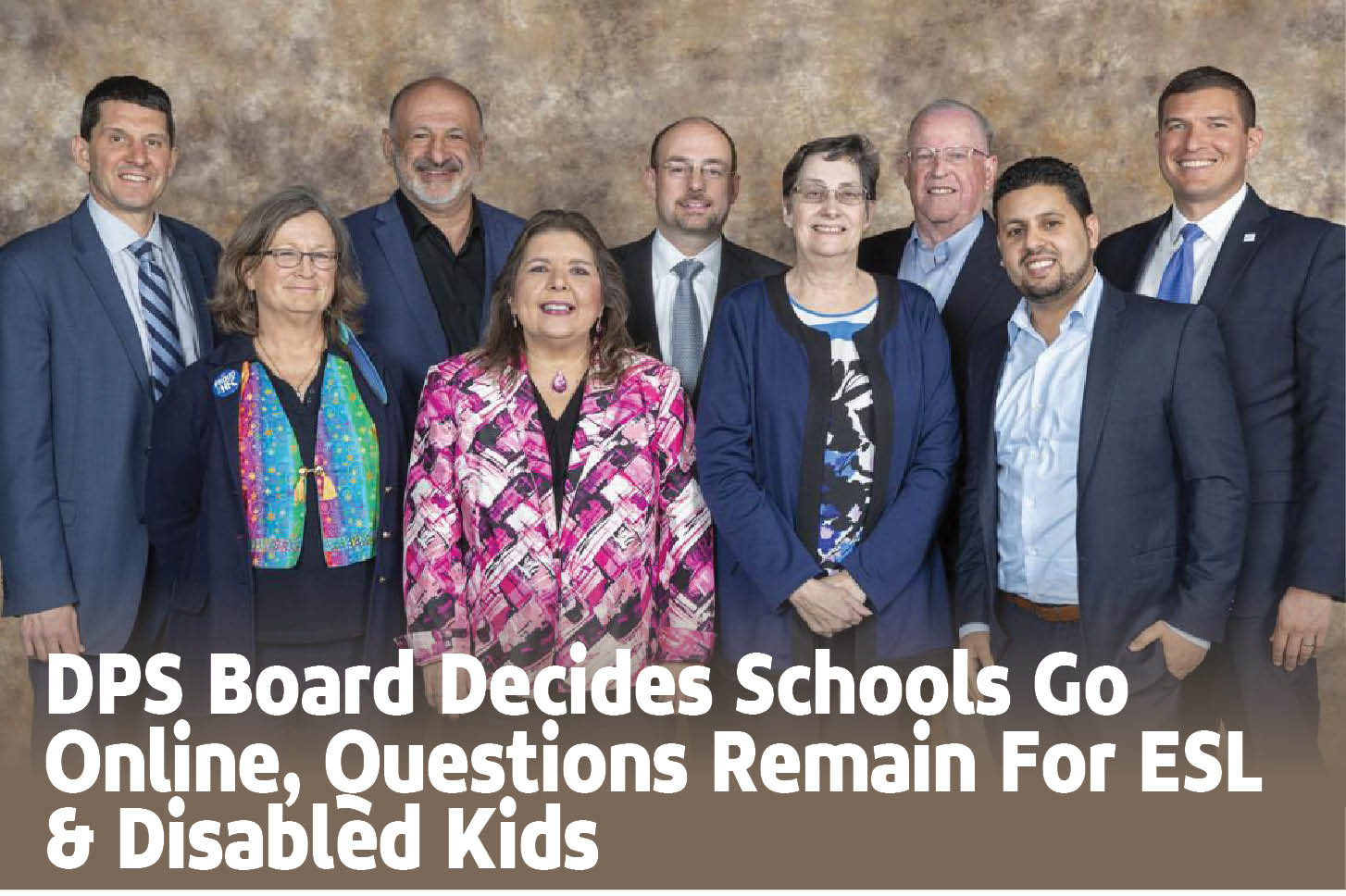By Brian Stone
DEARBORN, Mich. – As students in Dearborn public schools (DPS) get ready to return to school online on Aug. 31, many questions remain about how English-as-a-second-language (ESL) and disabled children will get an equitable education.
In a press release that the school district sent out, DPS officials say that they’ll be creating in-person learning labs for students’ “academic and social-emotional issues. Each of the district’s 36 schools will create its own schedule for learning labs.” The district is expected to re-evaluate the mostly-online learning environment in October.
However, the press release is not clear about how children with unique and specific needs – such as ESL and disabled students – will be helped if they are placed in the same lab as other students with different educational deficits. Many of those children are used to receiving daily instructional assistance, and the learning labs may not be available as frequently. Parents also may not be able to transport children to those labs at convenient times around their work schedules.
When DPS’ communications department was contacted with questions about how these needs would be addressed, the school district did not respond for comment, raising concerns about transparency and whether the district has any real plan for those students.
Adel Mozip, a trustee in the Dearborn board of education, said he is aware of the unique challenges ESL and disabled students face.

(Photo Credit: Adel Mozip)
“Absolutely. I think that that segment of the students, as well as special ed students, are taking this with great difficulty,” said Mozip. “I think the learning labs will be mitigating that problem, and the face-to-face instruction will be helping those groups, but it is one of the major concerns [for the board of education.]”
Hussein Berry, President of the Dearborn board of education, said he felt there was no replacement for the value of in-person education, but that with a plateau-ing and sometimes increasing number of COVID cases locally, it just wasn’t safe to do.
“Eventually, we want the students in front of a teacher, face-to-face, but until we get there we’ll be having these labs to help out our special needs students,” said Berry.
Berry also sounded a hopeful note about immigrant parents and ESL students, saying people shouldn’t count them out and their ability to help their kids attend school online.
“Right after we closed down, there was a family who landed here from Syria that my wife [Nofila Haidar] had helped,” said Berry. “Within a month they had their kids working and they made sure they were doing the homework.”
One of the big inequities children and parents face with a move to online education is the access to internet and a quiet space for learning. A recent study by the Associated Press shows that 17% of all students do not have access to a computer at home and 18% do not have access to a stable internet connection.

(Photo Credit: Henry Ford College)
However, where the school district’s resources end, non-profit groups like the Dearborn Educational Foundation have stepped in. Chastity Townsend, the spokesperson for the Dearborn Educational Foundation, said that they started a fundraising campaign to help provide internet access to students who live in a home without internet access.
“We do know there is a need for 200 students that do not have access to internet,” said Townsend. “We are running a campaign to raise $12,000 to provide 6 months of internet service for those students who need it.”
Townsend also said that computer access shouldn’t be as much of an issue in Dearborn public schools, because the district has approximately one Google Chromebook for each student. The investment in more computers started years ago, with the last Ed Foundation grant for Chromebooks happening in 2019.
“Over the years, we’ve purchased a bunch of Chromebooks for the district to supplement those needs. If I’m not mistaken, we’re at almost a 1-to-1 ratio. We funded our last batch of those in the 2019-2020 school year and the last school to get them was Salina,” said Townsend. “We got a grant for $7,700 to buy those.”
With non-profit groups and the schools scrambling to connect children to the new online learning platform, Schoology, questions still remain about the readiness gap for online learning. A Pew Research study shows that more than half of all Americans don’t have adequate resources to pursue online education successfully. With existing acheivement gaps between the majority of students and their ESL and disabled counterparts, online education is expected to only make the achievement gap worse.
Another question is whether low-income parents, who often lack the digital skills necessary to find resources for their children, will be helped with the transition to online education. Trustee Mozip said they will be taking steps to teach parents, not just students, how to work with their child’s education.
“There will be computer skills training. Teachers will be able to teach parents and students how to navigate. We’ve ordered a new platform called Schoology, and this platform will be comprehensive so parents won’t have to go to so many platforms,” said Mozip. “It’s very intuitive for both the students and the parents so they will be able to see where their child is at with their assignments.”
Mozip is the only DPS board member with a background in information systems technology. Mozip said that if parents want to return to in-person education, the most important thing they could do was taking personal responsibility for social distancing and safety during the pandemic.
“I would humbly ask that, while we’re going out right now, that we practice social distancing, wear our masks and be responsible,” said Mozip. “The scene of weddings and gatherings and not practicing social distancing is yielding a lot of high numbers in Dearborn, and it’s not helping us re-open schools for in-person learning.”
In many ways, this means that the fate of ESL and disabled students’ quality of education, and whether students continue to fall behind, may depend on whether young adults and parents follow social distancing rules and listen to CDC and Michigan department of health guidelines.












